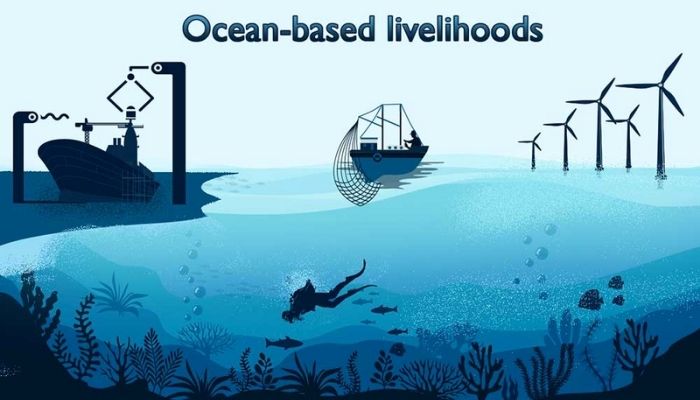Economy
NIMASA Seeks Private Sector’s Support to Develop Nigeria’s Blue Economy

The Nigerian Maritime Administration and Safety Agency (NIMASA) has sought the support of the private sector to develop the Nigerian blue (maritime) economy.
The Director General of NIMASA, Dr Bashir Jamoh stated this at a seminar organised by the Nigerian Institute of International Affairs (NIIA).
According to the World Bank, the blue economy is the sustainable use of ocean resources for economic growth, improved livelihoods, and jobs while preserving the health of the ocean ecosystem.
Investors King understands that Nigeria has huge economic prospects to benefit from the blue economy. Across Nigeria, there are bodies of water that can be exploited.
While emphasising the importance of synergy among all stakeholders, the DG disclosed that collaboration amongst all organs of government in Nigeria and the Organised Private Sector (OPS), will accelerate harnessing the Blue Economy in Nigeria.
As Africa’s foremost foreign policy Think Tank, the DG further called for the collaboration of the Nigeria Institute of International Affairs (NIIA) to facilitate policies that would enhance Nigeria’s maritime economy.
While acknowledging the progress made in securing the Nigerian Maritime domain and the Gulf of Guinea, the Director-General of the NIIA, Prof. Eghosa Osaghae highlighted the importance of the Blue Economy globally, calling for sustainable use of ocean resources to be considered when shaping government policies.
Meanwhile, the Nigerian Maritime Administration and Safety Agency (NIMASA) has attributed the high cost of foodstuff in the country to the war-risk insurance premium on Nigerian-bound vessels and cargoes.
The Director General of NIMASA, Dr Bashir Jamoh, who stated this in Port-Harcourt, pleaded with major insurance companies around the world to stop the collection of the premium on Nigerian-bound vessels and cargoes.
He said that the imposition of the war-risk insurance on all Nigerian-bound cargoes was a deadly blow to the economy as its negative impact on the cost of goods is felt by every Nigerian.
Recall that data from the National Bureau of Statistics (NBS) shows that food inflation in Nigeria rose to 23.72 percent in October 2022, from 23.34 percent in September 2022.